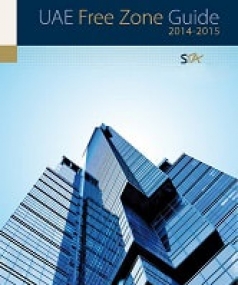Appealing Power: The Power to Appeal
 Power and responsibility go hand in hand. The power to appeal renders the responsibility to seek justice, and the public prosecutors have been entrusted with such powers to seek appeals in certain civil and criminal matters in the United Arab Emirates (UAE). The courts in the UAE, set out clearly, a hierarchy of levels establishing the different degrees of courts. The hierarchy of courts can be seen to be set out like the levels in a pyramid. The courts of first instance occupy the base level in the hierarchy of courts. As one goes higher to the next level, the courts of appeal come in on the second level. Moving on to the next level, the Federal Supreme Court is at the federal level, and the Court of Cassation is at the local level of the emirates which have independent judicial departments. In this article, I aim to bring to light the power of appeals by public prosecutors with respect to civil and criminal procedural matters in the territory of the UAE.
Power and responsibility go hand in hand. The power to appeal renders the responsibility to seek justice, and the public prosecutors have been entrusted with such powers to seek appeals in certain civil and criminal matters in the United Arab Emirates (UAE). The courts in the UAE, set out clearly, a hierarchy of levels establishing the different degrees of courts. The hierarchy of courts can be seen to be set out like the levels in a pyramid. The courts of first instance occupy the base level in the hierarchy of courts. As one goes higher to the next level, the courts of appeal come in on the second level. Moving on to the next level, the Federal Supreme Court is at the federal level, and the Court of Cassation is at the local level of the emirates which have independent judicial departments. In this article, I aim to bring to light the power of appeals by public prosecutors with respect to civil and criminal procedural matters in the territory of the UAE.
The power to appeal against a judgment passed by the courts in Dubai in civil matters is entrusted with the attorney general and in criminal matters with the public prosecutor. The court of cassation in Dubai is the highest degree of court and consistent with the provisions laid out in Article 173 of Federal law number 11/1992 (as amended) (Civil Procedural Law), appeals to the court of cassation must be filed within 60 days from the date of the judgment passed by the court of appeal. If the litigants in the dispute are unsatisfied with the decision rendered by a court, then the parties may file an appeal on the subject of law alone. The following conditions need to be satisfied for an appeal by the litigants to be accepted by the court of cassation:
- The appeal has to filed by the litigants in dispute within 60 days of the judgment by the court of appeal, and in cases of emergency within ten days from date of the judgment;
- The value of the claim in a civil action should be a minimum of AED 200,000 or above. For an appeal with criminal action, there is no such minimum value;
- A violation or breach of the law;
- Error in the application or interpretation of the law;
- The court did not hold jurisdiction for the particular case;
- The decision was rendered inadequately or on lack of reasons;
The judgments of the court of cassation are final and binding. Despite the above limitations, the attorney general has the power to file an appeal in the court of cassation against any final judgment irrespective of which court issued the decision within one year from the date of issuance of the judgment (Article 174 of Civil Procedural Code). Pursuant to Article 256 of the Federal Law Number 35/1992 (as amended) (the Criminal Procedural law) in the UAE, the public prosecutor has the right to challenge a judgment regardless of the court rendering it, and there is no time limit for making such appeal. However, the following conditions need to be satisfied with respect to filing an appeal by the attorney general in civil matters and the public prosecutor in criminal matters in the court of cassation of Dubai:
- Judgment is rendered on a breach or violation of law
- An error in the application or interpretation of the law
- Where the parties to the dispute do not fit the grounds to make an appeal
- Filing an appeal in a personal capacity and not on behalf of the litigants in the dispute
- Law of limitation stops the parties from filing such an appeal
- The court has rejected an appeal by the parties
- The parties have surrendered the rights to file an appeal
 The court of cassation has the authority to hear appeals against the decisions rendered by the courts of appeal. Judgments rendered by the court of cassation are final, conclusive and binding on both the parties of the dispute and are not subject to appeal. The public prosecutor has the authority to file an appeal in a civil action, even after the time limit has lapsed provided it is done within a period of one year from the date of the issuance of the judgment. This includes filing a claim after the lapse of the prescribed time period provided for raising such a claim, filing of the case in the wrong jurisdiction or violating the procedure of the law where the minimum requirement for a dispute in terms of money has to be met. Where a judgment has been achieved based on misrepresentation of the words of law or by the violation of a law, then such judgment can be said to be defective, and an appeal can be filed against such a judgment. In such a case, where the error renders the judgment to be defective, the attorney general shall have the power to appeal against this judgment. The following three conditions need to be satisfied:
The court of cassation has the authority to hear appeals against the decisions rendered by the courts of appeal. Judgments rendered by the court of cassation are final, conclusive and binding on both the parties of the dispute and are not subject to appeal. The public prosecutor has the authority to file an appeal in a civil action, even after the time limit has lapsed provided it is done within a period of one year from the date of the issuance of the judgment. This includes filing a claim after the lapse of the prescribed time period provided for raising such a claim, filing of the case in the wrong jurisdiction or violating the procedure of the law where the minimum requirement for a dispute in terms of money has to be met. Where a judgment has been achieved based on misrepresentation of the words of law or by the violation of a law, then such judgment can be said to be defective, and an appeal can be filed against such a judgment. In such a case, where the error renders the judgment to be defective, the attorney general shall have the power to appeal against this judgment. The following three conditions need to be satisfied:
- Violation of the law;
- Error in the application of the law; and
- Error in the interpretation of the law
The attorney general has the authority to appeal against any judgment if it has been passed in violation of the law, if there is an error in the application or if there is an inaccuracy in the interpretation of the law (Dubai court of cassation in appeal number 2015/462). This includes where the judiciary has established the legal basis wrongly, where it does not meet the conditions for its application, such as filing a case in the wrong jurisdiction and where an error was caused affecting the judgment.
A court of first instance is the first degree in the hierarchy of courts in UAE. Such courts have the jurisdiction to hear all matters related to civil, commercial, administrative, labor and personal status lawsuits. If any party is unsatisfied with the final decision of the courts of first instance, then such parties can appeal in the court of appeal which is the second degree of litigation in the hierarchy of courts in UAE. There is a statute of limitation imposed where the time limit for filing such an appeal against the judgment of the court of first instance will have to be filed after the passing of 30 days unless otherwise provided and in the matters of urgency such an appeal could be heard after a lapse of 10 days from the day of the judgment being rendered.
Case Analysis
This article aims to discuss the different scenarios where the attorney general and public prosecutors filed an appeal and whether such an appeal was accepted or not.
- The attorney general has the power to make an appeal against the final judgments rendered by courts in civil matters (provided it is done within the prescribed limit) and not against the final decisions of the committee of the appeals department in the center for lease dispute resolution. Center for lease dispute resolution in the emirate of Dubai by Decree Number 26/2013 is the authority to adjudicate all rental disputes arising. Article 14 of this decree mandates that all decisions passed by the appeal’s department committee at the centre are final and cannot be contested by any appeal. In this particular matter, there was a rental dispute between a lessor and a tenant. The attorney general appealed against the decision of the appeal’s committee at the center. It was held that Article 14 holds the decisions of the committee to be conclusive and binding and that nowhere does it mention in the decree that the attorney general holds power to appeal against the decisions of the committee. The court held that such an appeal was not valid and it was not within the powers of the attorney general to file an appeal against the decisions of the committee (Dubai Court of cassation in appeal number 2015/129). The attorney general does not hold power to file an appeal against the final decisions of the independent committees and bodies unless the text of such independent committees states the same.
- In cases of private courts, committees and where independent bodies have been set up, the law of such bodies and courts need to mention that the attorney general will have the authority to contest an appeal against the decisions of such bodies. Otherwise, the attorney general will have no authority to appeal against the decisions of such private courts or committees. In the present matter, there was a dispute regarding an insurance claim in the regular courts of Dubai formed under the law on the formation of courts in the emirate of Dubai (Law number 3/1992). It was concluded that the attorney general should be restricted to the final rulings by the regular courts under this law and the special courts or special judicial committees of the same law unless a special provision is added allowing the attorney general to have the authority to file such an appeal against the decisions of such regular and special courts/committees (Dubai Court of cassation in appeal number 2014/411).
- The public prosecutor has the right to appeal in the interest of law where there is an error or violation of the law; however, such an appeal shall accept such an appeal, if the object of the appeal is not at the heart of the law. The court of cassation did not accept the appeal in the present matter, as the claim of the appeal by the attorney general that was shown to be in the interest of law was not at the heart of the law.
- The parties to a dispute are not entitled to appeal against the judgment of the court if the prescribed time period for raising such a claim has lapsed. In the present matter, the public prosecutor was one of the parties in the matter. The litigants in a dispute are not allowed to file an appeal against the judgment of the court after the prescribed time period for raising such a claim has lapsed. However, an exception to this was made in this particular case as the public prosecutor instituted the appeal not as a litigant in the matter, but in his personal capacity to file an appeal within the time period of one year from the issuance of the judgment consistent with the provisions set out in Article 174 of the Civil Procedural Code of UAE (Dubai court of cassation in appeal number 2008/89). This holds an exception to the rule for all parties in a dispute not to have the authority to file an appeal after the limitation period has expired, but where one of the parties being the public prosecutor can file an appeal in his personal capacity pursuant to Article 174.
-
 It has been established that the public prosecutor has the authority to appeal against final judgments of courts provided it is done within the allocated time frame of 1 year from the date of issuance of the judgment. If the public prosecutor makes such an appeal after the lapse of 1 year, then such an appeal shall not be accepted. However, in the present matter, the opposite of this was decided. The court of cassation accepted the appeal of the public prosecutor even after the lapse of 1 year, stating that the time period of 1 year was to be counted from the date of the appeal of the judgment and not from the date of the original verdict issued (Dubai court of cassation in appeal number 2000/211). In the present matter, an appeal by one of the parties had been submitted to the court of cassation which the court rejected. Following this, the public prosecutor made an appeal in the court of cassation. The court held that the time period of 1 year should be counted from the date of the issuance of the final ruling of the subject of the appeal. This raises a concern as the courts have the discretion to decide whether such an appeal by the public prosecutor will be accepted or not depending on the varying circumstances of the case.
It has been established that the public prosecutor has the authority to appeal against final judgments of courts provided it is done within the allocated time frame of 1 year from the date of issuance of the judgment. If the public prosecutor makes such an appeal after the lapse of 1 year, then such an appeal shall not be accepted. However, in the present matter, the opposite of this was decided. The court of cassation accepted the appeal of the public prosecutor even after the lapse of 1 year, stating that the time period of 1 year was to be counted from the date of the appeal of the judgment and not from the date of the original verdict issued (Dubai court of cassation in appeal number 2000/211). In the present matter, an appeal by one of the parties had been submitted to the court of cassation which the court rejected. Following this, the public prosecutor made an appeal in the court of cassation. The court held that the time period of 1 year should be counted from the date of the issuance of the final ruling of the subject of the appeal. This raises a concern as the courts have the discretion to decide whether such an appeal by the public prosecutor will be accepted or not depending on the varying circumstances of the case.
 English
English
 عربي
عربي Русский
Русский 官话
官话 português
português
 Türk
Türk 














